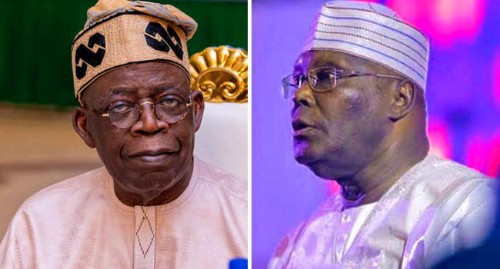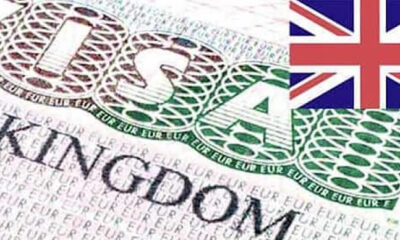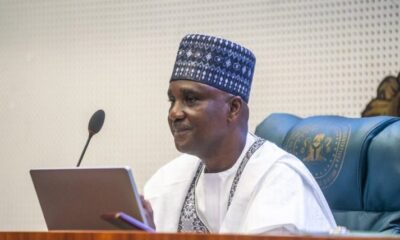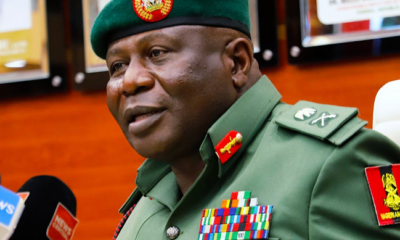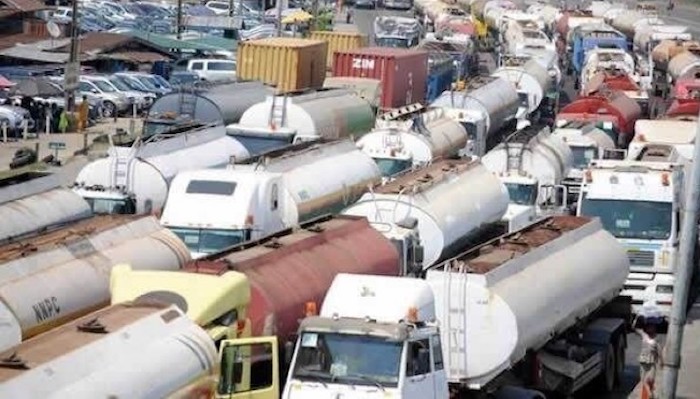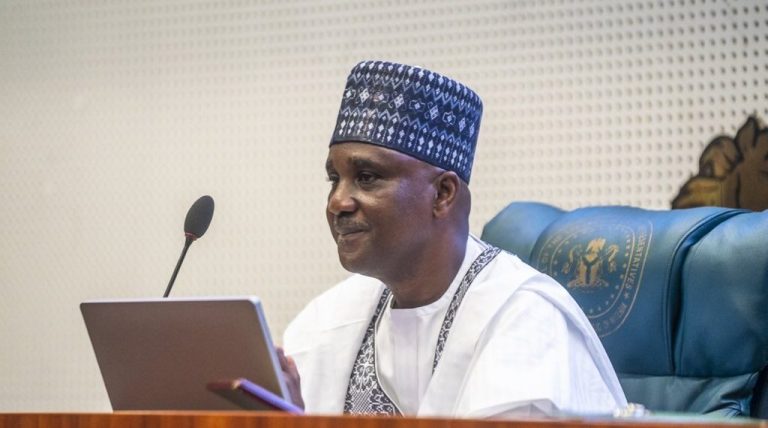- Dealers Insist PMS Must Be Cheaper Than Dangote’s.
- NNPCL Delays Price Portal Opening, Restricts Product.
Oil marketers have outlined the conditions under which they would consider patronizing the newly rehabilitated Port Harcourt Refinery Company (PHRC) in Rivers State. They stated that the refinery, managed by the Nigerian National Petroleum Company Limited (NNPCL), must offer its refined petroleum products at prices lower than those set by the Dangote Petroleum Refinery.
In response to claims made on Wednesday that its petrol was being sold at approximately N1,045 per litre, the NNPCL clarified that the refinery had not yet released its prices. According to the company, products from the refinery are currently being supplied only to NNPCL-owned stations.
Olufemi Soneye, the spokesperson for NNPCL, explained that the company is still reviewing its pricing structure and has not yet begun bulk sales, as its purchasing portal remains closed.
In related news, it was reported on Wednesday that oil marketers had imported a total of 105.67 million litres of petrol into the country within a span of five days.
Marketers confirmed that NNPC was selling petrol at N1,045/litre, stressing that they may be compelled to opt for petrol importation as a means of meeting local demands.
According to The Punch, a total sum of 78,800 metric tonnes representing 105.67 million litres of petrol was imported into the country in the last five days spanning November 23 and November 28.
On Tuesday, the 60,000-capacity Port-Harcourt refinery resumed operations after years of inactivity, drawing initial praise from Nigerians and industry stakeholders.
The NNPC said the newly rehabilitated complex of the old Port Harcourt refinery, which had been revamped and upgraded with modern equipment, is operating at a refining capacity of 70 per cent of its installed capacity.
NNPC added that diesel and Pour Fuel Oil would be the highest output from the refinery, with a daily capacity of 1.5 million litres and 2.1 million litres, respectively.
This is followed by a daily output of Straight-Run Gasoline (Naphtha) blended into 1.4 million litres of Premium Motor Spirit (petrol), 900,000 litres of kerosene, and low-pour fuel oil of 2.1 million litres.
It was stated that about 200 trucks of petrol would be released into the Nigerian market daily.
However, claims that the national oil firm’s PMS price was higher than that of Dangote triggered diverse reactions from marketers.
The National Publicity Secretary of the Independent Petroleum Marketers Association of Nigeria, Chinedu Ukadike, told one of our correspondents that though NNPC had yet to release any price for the products from the refurbished Port Harcourt refinery, a high price would discourage marketers.
Dangote currently sells his petrol at N970/litre, while imported petrol is around that price.
Ukadike, however, noted that there was the possibility that the NNPC would review its prices downward when the Port Harcourt refinery comes fully on stream.
He confirmed that the state-owned oil company sells a litre of PMS at N1,040 or N1,045 while the Dangote refinery just reviewed its price from N990 to N970 for marketers buying a minimum of two million litres.
Ukadike did not mince words when he said independent marketers would only buy from the NNPC if its price is cheaper than that of Dangote or vice versa.
“With the Port Harcourt refinery now working, we are anticipating that any moment from now, NNPC will give us its price. Once NNPC releases its price, we will start loading from NNPC. That is subject to if it is cheaper than that of Dangote.
“The last NNPC price was N1,040 and N1,045 per litre. But I know there will be a review of prices because there has been a crash in prices globally. So, we are expecting a review. Once that review is done, I will be able to give you the actual price. I know they are reviewing it. They are on top of the matter,” the IPMAN spokesman said.
The latest development also indicates that oil marketers may commence the importation of fuel if the prices set by both domestic refineries surpass their profit margins, thereby making it more financially viable for them to rely on imported fuel rather than locally produced stock.
The National Public Relations Officer of the Petroleum Products Retail Outlets Owners Association of Nigeria, Dr Joseph Obele, had earlier said NNPC petrol was N75 higher than the N970/litre offered by Dangote refinery.
However, PETROAN’s President, Billy Gillis-Harry, in a statement denied the claim, stressing that no price has been released by the national oil firm.
He explained that members of the association bought PMS based on the old pricing structure and are still waiting for the updated prices.
The statement read, “The National Headquarters of Petroleum Products Retail Outlet Owners Association of Nigeria, PETROAN Abuja would Like to Inform the media and the general public that no new price for PMS has been released by the NNPC port Harcourt refinery.
“Members of PETROAN only bought PMS with the old pricing template awaiting
new prices. We are excited that the production and loading of refined petroleum products have commenced at the Port Harcourt Refinery and we are expectant that soon the price of PMS will be stated by NNPC to the benefit of Nigerians.”
But in a message sent to journalists on Wednesday night, the NNPC spokesperson said the national oil firm had not started selling its products from the Port Harcourt refinery to other oil marketers.
He was reacting to an earlier claim by the Petroleum Products Retail Outlets Owners Association of Nigeria that the newly rehabilitated Port-Harcourt refinery was selling at N1,045/litre to oil marketers.
He noted that only NNPCL retail stations are receiving products from the refinery.
He said, “We have not yet commenced bulk sales, and we have not yet opened the purchase portal as we are still finalizing the necessary processes.”
He further stated its current stock was procured from the Dangote Refinery and includes fees and levies.
“At present, the products we are selling are what we bought from the Dangote Refinery, which includes NMDPRA fees. The product from PH is currently for our retail stores. Our prices are regularly reviewed and adjusted as required.”
Meanwhile, fresh findings (by The Punch) have revealed that a total sum of 78,800 metric tonnes representing 105.67m litres of petrol have been imported into the country in the last five days spanning November 23 and November 28.
The product was conveyed in four vessels with the latest to be received today (Thursday, November 28, 2024), according to documents obtained from the Nigerian Ports Authority on Wednesday.
An analysis of the document showed that 38,500 metric tonnes of petrol imported on Monday, November 25 berthed at the Lagos Apapa port (Bulk Oil Plant).
Similarly, a Bedford ship conveying 10,000mt of PMS will berth at the Ebughu jetty, Calabar port in Cross Rivers on Thursday, November 28.
Two vessels that arrived on Saturday, November 23 is still waiting to berth. The ships are carrying 30,300mt of fuel.
It also revealed that 11,000 metric tonnes of base oil was imported while the 20bn Dangote refinery received crude oil worth 133,986 metric tonnes on Monday, November 27, 2024.
Last week, oil marketers and the NNPCL had stated plans to stop the import of fuel to focus on off-taking from domestic sources.
This was a fallout from a high-level meeting organised by the NNPC Group CEO Mele Kyari, and the Nigerian Midstream and Downstream Petroleum Regulatory Authority. In attendance were representatives of the Major Oil Marketers Association of Nigeria, Depot and Petroleum Products Marketers Association of Nigeria, and key stakeholders from companies such as 11 Plc, Matrix, and AA Rano, among other stakeholders at the NNPCL towers in Abuja.
The meeting was in growing confidence in Dangote Refinery’s ability to meet the nation’s domestic fuel demand and the need to cut fuel imports.
Credit: The Punch

 BIG STORY4 days ago
BIG STORY4 days ago
 BIG STORY4 days ago
BIG STORY4 days ago
 BIG STORY4 days ago
BIG STORY4 days ago
 BIG STORY3 days ago
BIG STORY3 days ago
 BIG STORY2 days ago
BIG STORY2 days ago
 BIG STORY3 days ago
BIG STORY3 days ago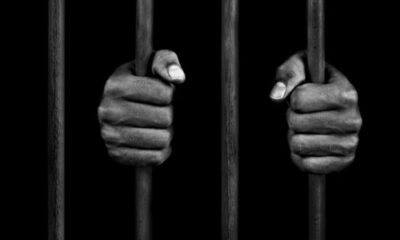
 BIG STORY2 days ago
BIG STORY2 days ago
 BIG STORY3 days ago
BIG STORY3 days ago




